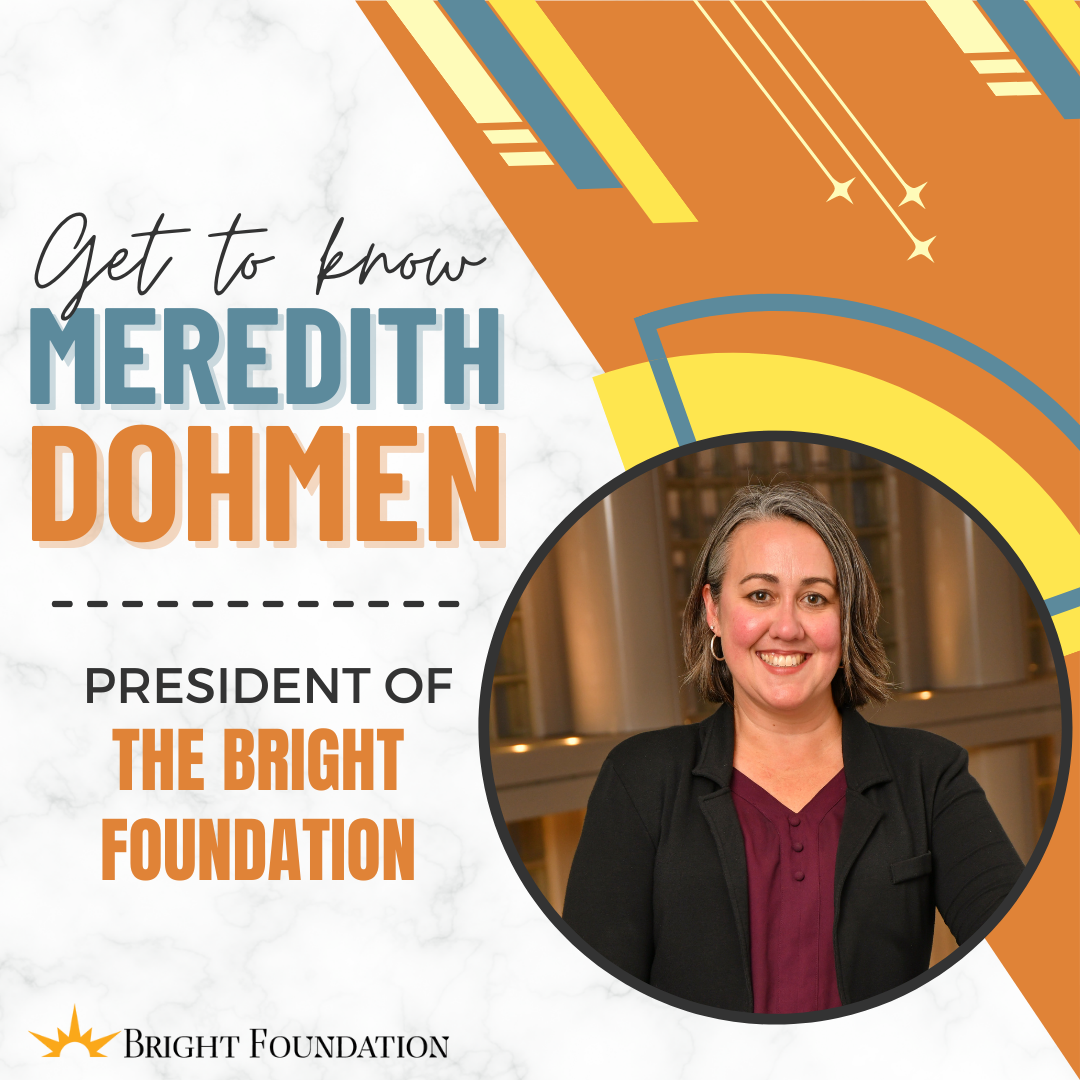Get To Know Meredith Dohmen

“I believe all students should have equitable opportunities to find their own success, particularly through education, regardless of any demographic factor including race, ethnicity, gender, or socioeconomic background. That core belief is why I do the work I do and translates directly to being the President of the Bright Foundation.”
What was your education and career pathway that led you to being the President of the Bright Foundation?
This is quite a bit of a winding road, so stick with me here! I went straight from high school to Iowa State where I graduated with a degree in Child and Family Services and a minor in Spanish. I changed my major once from Political Science and International Relations, which is another story all together. By my junior year of college, I was working mostly full-time in my field as a Resident Counselor at a residential and day treatment facility for children in Ames. Shortly after I graduated, I moved to Florida where I worked as a leasing consultant for an apartment complex, then as a bookkeeper for a non-profit. After about a year and a half, I moved back to Iowa and started working as an Assistant Property Manager for a commercial real estate company while I figured out what I wanted to do. While I enjoyed real estate, I missed the aspect of helping youth and decided I wanted to go to grad school. I also got my Real Estate License and worked as a Brokerage Assistant in commercial real estate while I went to grad school. So from the ages of 19 – 23, I had quite a variety of work experiences that were mostly found by following the path of least resistance. They did help me to solidify what type of work would allow me to be financially independent while also staying true to myself and what most fueled my passions.
During college, a friend gave me a book called Savage Inequalities by Johnathan Kozol that focused on inequities in public education. At the time I read it, I remember thinking, “this is what I want to do; I want to address these needs, but I don’t want to teach.” In hindsight, I wish I would have discussed this with an advisor or someone in college to explore this possible career path as it may have led me down more of a research path. But, that path of least resistance meant I put myself into Child and Family Services and a 3.5 year graduation plan, which was just fine with me. Years later, this book came back to me as I was contemplating my “real” career path and deciding on graduate programs.
I knew I wanted to be an advocate for youth and opportunities for them, and systemic inequities still got me all riled up, so I considered both law school and getting my masters in school counseling. I sat for my LSATs but then at application time, I opted for the school counseling route, putting all of my eggs in that basket first. Likely it felt like the path of least resistance again. It all worked out for the best for me and I found myself working in a field that led to more opportunities for me to advocate for youth, work towards addressing systemic inequalities, grow as a leader in my field, and get to collaborate with some of the most intelligent, passionate, inspiring, and fun individuals across the country and right here in Iowa. That career in school counseling for over a decade is what connected me with the Bright Foundation where I started as the Director of Scholarships. All the jobs I’ve had along the way have helped to prepare me in some way for the role I have today as President.
What personal values do you bring to your role as President of the Bright Foundation?
I believe all people should have equitable opportunities to find their own success, particularly through education, regardless of any demographic factor including race, ethnicity, gender, or socioeconomic background. That core belief is why I do the work I do and translates directly to being the President of the Bright Foundation. At one point, a high school education was sufficient to find success in a career field and support yourself in life. We know that is not the case today and it is imperative to me that everyone have the opportunity to pursue post-secondary education and training. Not everyone wants or needs a bachelor’s degree, but for those that do, I want to remove as many barriers as possible so those on that path have every tool available to find their own success. It is my pleasure and privilege to lead the Bright Foundation in its endeavors to support more students across the state in graduating college so that they too can launch their own careers and leverage that college experience as they navigate their own journey.